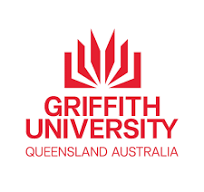
BACHELORS OF FORENSIC SCIENCE / CRIMINOLOGY AND CRIMINAL JUSTICE


Overview
4 YEARS
YES
AU $38,500 PER YEAR
FEB
Overview
> With this double degree, you'll develop an in-depth knowledge of new forensic analytical methods and innovations as they are applied to biology and chemistry and gain valuable experience and insight from real casework. You'll learn about the trends in crime in Australia and take courses that cover the police, courts and criminal law, forensic psychology and homicide.
> You will take your place at the largest school of criminology in Australia where you will learn from industry leaders and academics who bring real and compelling stories of crime to your study.
Industry and expert connections
> In your final year, you can complete a professional placement and gain practical justice-related experience. Eligible students have the opportunity to take part in the Criminology Undergraduate Research Internship Program in which you will be mentored one-on-one by criminology experts as you undertake a research project that suits your interests. Internship opportunities are offered on a competitive basis three times a year and usually last four-to-six weeks. It's a priceless opportunity only available through Griffith.
Career outcomes
> As a graduate, you'll be prepared to work as a DNA expert, a forensic molecular biologist, forensic chemist or forensic toxicologist and as an acknowledged expert in these or a variety of other roles within the criminal justice system.
> You will also find employment in policing and security, intelligence, probation and parole, child protection, crime analysis, courts and justice services, crime prevention and regulatory agencies. You may also choose to continue your studies with an honours degree in either forensic science or criminology and criminal justice, which can lead to a Doctor of Philosophy (PhD).
Majors
*Forensic Science
*Forensic Chemistry
*Forensic Molecular Biology
Flexibility
> Tailor your timetable - Even if you study full-time on-campus, you may still be able to customise your degree to suit your needs. From a range of tutorial times to online access to lectures and other course material, we're here to help you fit study in with your work and life commitments.
Global mobility
> This may be possible through a study abroad opportunity or through Criminology Student Society organised tours with police and corrections.
Professional recognition
> Professional recognition will vary depending upon your choice of major:
Forensic Chemistry: The Australian and New Zealand Forensic Science Society (ANZFSS) and the Royal Australian Chemical Institute (RACI) recognise graduates of this award.
Forensic Molecular Biology: The Australian and New Zealand Forensic Science Society (ANZFSS) and the Australian Society for Biochemistry and Molecular Biology (ASBMB) recognise graduates of this award.
Attendance information
> The Bachelor of Forensic Science/Bachelor of Criminology and Criminal Justice is offered full-time on campus at both the Nathan and Mount Gravatt campuses. Criminology courses are also offered online.
> As a full-time student you will generally attend 10-15 hours of scheduled classes per week throughout the trimester. Classes may be scheduled during the day and evening throughout the week. Some scheduled classes are held off-campus during the evenings; for example, moot court sessions in 3028NSC Forensic Evidence and the Expert Witness are held at the Brisbane Magistrates Court one evening per week over eight weeks.
> If you are an International student on a student visa, you must ensure that you enrol in a way that will allow you to complete your enrolment within the expected program duration as stated on your Confirmation of Enrolment (CoE).
My career opportunities
Key employment sectors*
*Policing and security
*Probation and parole
*Child protection
*Courts and justice
Potential job outcomes
*Forensic scientist
*Criminal investigator
*Child protection officer
*Police detective
*Criminologist
Source: Australian Government Job Outlook
Inquire Now
Entry Requirements
> Qualification: School Leaving Certificate Examination awarded by National Examinations Board
> Your entry requirements include: Grade average of 3.6 in the final year results
> Qualification: Nepalese Proficiency Certificate
> Your entry requirements include: Grade average of 89 in the final year results
> English language requirements apply to International applicants and other applicants whose previous study was undertaken in a language other than English. The minimum English language requirements for such applicants for entry to this program are as follows:
- A minimum overall band score of 6.5 on IELTS (Academic) with no sub-score of less than 6.0
- OR a minimum score of 575 on TOEFL
- OR an internet-based (iBT) TOEFL score of 79 (no sub-score less than 19)
- OR no score less than 3+ in each skill of the ISLPR (conducted by ISLPR Language Services only)
- OR a minimum overall score of 176 (no score less than 169) on C1 Advanced (formerly Cambridge Certificate in Advanced English) or C2 Proficiency (formerly Cambridge Certificate of Proficiency in English)
- OR an overall score of 58 in the Pearson Test of English (Academic) with no score less than 50.
Fees
Tuition fees
> An International student pays tuition fees.
> Students are liable for tuition fees for the courses they are enrolled in as at the census date.
> The tuition fee for students who commence their program prior to 2014 is charged according to the approved program fee for the trimester in which the student commenced the program.
> FEE (INDICATIVE): $38,500 per year
Scholarships
> file:///C:/Users/LANDMASRK%20EDUCATION/Documents/Scholarships%20and%20finance%20Griffith%20UNI.html
Find your perfect course
Head Office
Kamaladi, Kathmandu
Tel: +977 14542781, 9845566225
E-mail: info@landmarkedu.com
Sydney office
Rockdale, NSW 2216,
Tel: +61 415 122 814
Branch office
Tel: 056-590825
Tel: 021-590828
Tel: 977-71-591694



